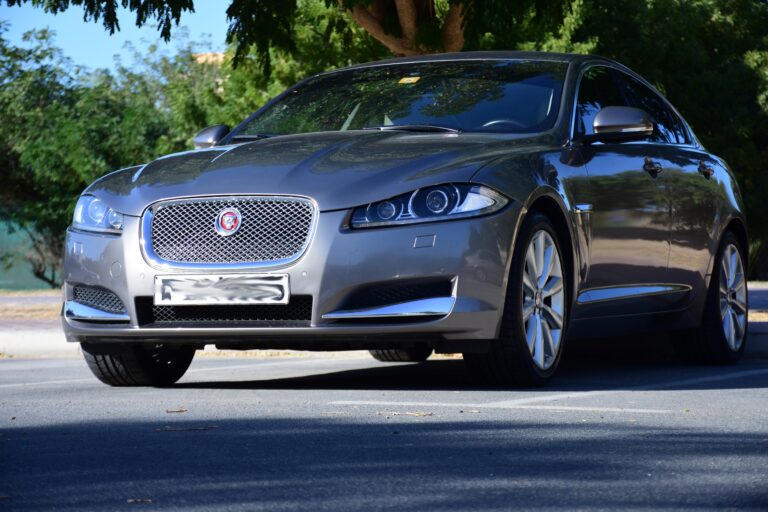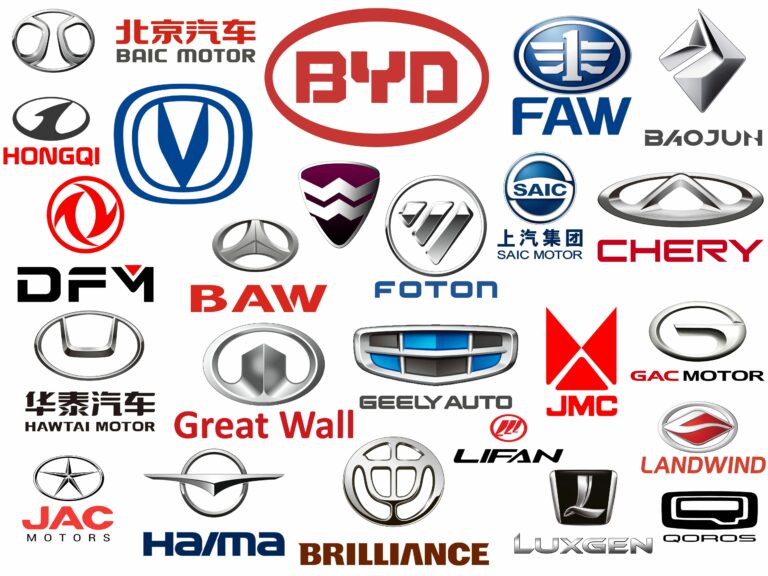The Unsung Hero of the Road: Unveiling the Most Dependable Car Brands
The Unsung Hero of the Road: Unveiling the Most Dependable Car Brands cars.truckstrend.com
In the vast and ever-evolving landscape of automotive choices, one characteristic consistently ranks highest on a buyer’s priority list: dependability. More than just a buzzword, "dependability" in the context of a car brand signifies reliability, longevity, and a consistent ability to perform without unexpected breakdowns or costly repairs. It’s the peace of mind that comes from knowing your vehicle will get you to your destination, day in and day out, without hassle. For many, a dependable car is not just a mode of transport; it’s a vital tool for work, family, and daily life, an investment that pays dividends in safety, financial savings, and sheer convenience.
This comprehensive guide will delve into what makes a car brand dependable, explore the top contenders consistently lauded for their reliability, and provide practical advice on how to choose and maintain a vehicle that stands the test of time.
The Unsung Hero of the Road: Unveiling the Most Dependable Car Brands
Defining Automotive Dependability: More Than Just Miles
Dependability in an automobile encompasses a broad spectrum of attributes that contribute to a vehicle’s long-term performance and owner satisfaction. It’s not merely about how many miles a car can accumulate, but how it accumulates them. Key indicators and factors include:
- Reliability Ratings: Independent organizations like J.D. Power, Consumer Reports, and RepairPal meticulously track vehicle issues reported by owners over time. These reports often differentiate between initial quality (problems in the first 90 days) and long-term dependability (issues after three years of ownership).
- Frequency and Severity of Repairs: A truly dependable car experiences fewer unscheduled repairs. When repairs are needed, they tend to be less severe and less costly.
- Longevity of Core Components: Engines, transmissions, and electrical systems are the heart of a vehicle. Dependable brands build these components to withstand years of use with minimal wear and tear.
- Build Quality and Material Durability: The quality of materials used in the interior, exterior, and underpinnings directly impacts how well a car holds up against daily use, weather, and road conditions.
- Recall History: While recalls are a necessary safety measure, a consistently low number of widespread recalls can indicate a brand’s commitment to thorough testing and quality control before vehicles leave the factory.
- Owner Satisfaction: Beyond technical metrics, how satisfied owners are with their vehicle’s performance and reliability over time is a strong indicator of true dependability.

The Pillars of Dependability: What Makes a Brand Reliable?
Behind every consistently dependable car brand lies a foundation of meticulous engineering, stringent manufacturing processes, and a deep understanding of customer needs.
- Engineering Excellence and Rigorous Testing: Leading dependable brands invest heavily in research and development, designing components not just for performance but for durability. They subject prototypes to extreme conditions – from arctic cold to desert heat, from punishing road tests to simulated long-term wear – to identify and rectify weaknesses before production.
- Quality Control and Manufacturing Precision: Automation, highly skilled labor, and rigorous quality checks at every stage of the assembly line ensure consistency and minimize defects. This includes precise fitting of parts, robust welding, and flawless paint application.
- Use of Durable, High-Quality Materials: From the grade of steel in the chassis to the polymers in interior components, dependable brands opt for materials that resist corrosion, wear, and fatigue, ensuring structural integrity and aesthetic appeal over time.
- Simplicity vs. Complexity (Balanced Approach): While modern cars are increasingly complex, dependable brands often find a sweet spot, integrating advanced technology without introducing an excessive number of potential failure points. Sometimes, simpler, proven designs for core mechanical systems lead to greater long-term reliability.
- Strong Dealership Network and Parts Availability: Even the most dependable car will eventually need maintenance or a repair. Brands with a wide network of trained technicians and readily available, affordable parts contribute to lower ownership costs and quicker service, enhancing the overall dependability experience.
- Continuous Improvement and Feedback Loops: Top brands actively solicit feedback from owners, monitor warranty claims, and analyze field data to identify emerging issues and implement design or manufacturing improvements in subsequent models.
Top Contenders for the "Most Dependable" Crown
While no brand is immune to an occasional issue, several manufacturers consistently rank at the top for dependability, earning the trust of millions of drivers worldwide.
- Toyota: A perennial leader, Toyota’s reputation for bulletproof reliability is legendary. Models like the Camry, Corolla, and RAV4 are known for their exceptional longevity, low maintenance costs, and high resale value. Toyota’s philosophy of continuous improvement and conservative, proven engineering has solidified its position.
- Lexus: As Toyota’s luxury division, Lexus inherits the same robust engineering and manufacturing excellence, delivering upscale vehicles with virtually unmatched reliability. Their focus on meticulous build quality and exceptional customer service further enhances the ownership experience.
- Honda: Another Japanese powerhouse, Honda is celebrated for its durable engines, efficient powertrains, and consistent longevity. The Civic, Accord, and CR-V are benchmarks in their respective segments for their dependable performance and engaging driving dynamics.
- Mazda: In recent years, Mazda has significantly climbed the reliability rankings. They combine refined driving dynamics and premium interiors with robust engineering, proving that dependability doesn’t have to come at the expense of driver enjoyment.
- Subaru: Known for their standard all-wheel-drive systems and robust, go-anywhere capability, Subaru vehicles like the Forester and Outback have a strong following for their dependability, especially in challenging climates. While they faced some specific engine issues in the past, their current lineup is highly rated for reliability.
- Hyundai & Kia: These South Korean sister brands have made remarkable strides in quality and dependability over the last decade. Backed by industry-leading warranties, their vehicles offer compelling value, stylish designs, and significantly improved long-term reliability, making them strong contenders in the dependability discussion.
Beyond the Brand: Factors Influencing Your Car’s Dependability
While choosing a brand known for reliability is crucial, your actions as an owner play a significant role in how dependable your specific vehicle remains over its lifespan.
- Regular and Proactive Maintenance: Adhering to the manufacturer’s recommended service schedule (oil changes, fluid checks, tire rotations, filter replacements) is paramount. Proactive maintenance prevents small issues from escalating into major, costly repairs.
- Mindful Driving Habits: Aggressive driving, sudden acceleration and braking, and neglecting proper warm-up/cool-down procedures can prematurely wear down critical components like the engine, transmission, and brakes. Gentle, consistent driving extends a car’s life.
- Environmental Factors: Exposure to harsh climates (extreme heat or cold), salted roads, and rough terrain can accelerate wear and tear. Regular washing (especially undercarriage), rustproofing, and appropriate tires can mitigate these effects.
- Vehicle History (for Used Cars): When buying used, a comprehensive vehicle history report (e.g., CarFax, AutoCheck) is indispensable. It reveals past accidents, flood damage, recall completion, and service records, providing crucial insights into a car’s true condition and potential for future issues.
- Model-Specific Nuances: Even within a highly dependable brand, certain models or specific model years might have known quirks or common issues. Always research the specific year and model you’re considering.
Choosing Your Dependable Ride: A Practical Guide
Navigating the car market for a dependable vehicle requires a strategic approach.
- Extensive Research: Consult multiple reputable sources for reliability ratings (J.D. Power Vehicle Dependability Study, Consumer Reports’ Annual Auto Surveys, RepairPal). Look at long-term data, not just initial quality.
- Identify Your Needs and Budget: Determine what size, type (sedan, SUV, truck), and features you require. Balance these needs with your budget, remembering that a higher initial price for a dependable vehicle often translates to lower long-term ownership costs.
- Read Owner Reviews and Forums: Real-world experiences from owners can provide invaluable insights into common problems, service experiences, and overall satisfaction that might not appear in official reports.
- Thorough Test Drive: Pay attention to how the car feels, sounds, and handles. Are there any unusual noises, vibrations, or warning lights? Test all features.
- Vehicle History Report (Used Cars): Never skip this step for a used vehicle. It’s a window into the car’s past.
- Pre-Purchase Inspection (Used Cars): Always have an independent, trusted mechanic inspect any used car you’re seriously considering. They can identify underlying issues that might not be apparent to the untrained eye.
- Consider Warranty and Extended Service Plans: Even dependable cars can have issues. A good warranty provides peace of mind. For used cars, research options for certified pre-owned (CPO) vehicles, which typically come with extended warranties.
The Long-Term Benefits of Dependability
The choice to invest in a dependable car brand yields significant advantages that extend far beyond the initial purchase.
- Financial Savings: Fewer repairs, lower maintenance costs, better fuel efficiency (due to well-maintained systems), and potentially lower insurance premiums contribute to substantial savings over the vehicle’s lifespan.
- Peace of Mind: Knowing your car is reliable reduces stress, especially on long trips or during critical commutes. It means less worrying about breakdowns and unexpected expenses.
- Enhanced Safety: A car that consistently performs as expected, with all systems functioning correctly, is inherently safer. You’re less likely to be stranded in a dangerous situation due to mechanical failure.
- Higher Resale Value: Dependable cars are in high demand in the used car market, meaning they retain a higher percentage of their original value, providing a better return on your investment when it’s time to sell or trade in.
- Environmental Impact: Keeping a car longer and reducing the need for premature replacement lessens your overall carbon footprint and reduces waste associated with vehicle manufacturing and disposal.
Addressing Challenges: When Dependability Isn’t Perfect
It’s important to acknowledge that no car, regardless of brand, is 100% infallible. Even the most dependable brands can produce a "lemon" or encounter specific issues with certain models or components.
- Individual Vehicle Variation: Manufacturing processes, while precise, aren’t perfect. An individual vehicle can have a defect even if the model line is generally reliable.
- Model-Specific Weaknesses: Sometimes, a new technology or component introduced in a specific model year can have unforeseen issues, even for otherwise reliable brands.
- Importance of Warranty and Support: A strong manufacturer’s warranty and accessible, knowledgeable customer support are crucial. They provide a safety net when unexpected problems arise.
- Recalls: While potentially inconvenient, recalls are a sign that a manufacturer is proactively addressing safety or performance issues. Always check for and address any open recalls on your vehicle.
Table: Representative Information for Most Dependable Car Brands
It’s important to note that "price" for a car brand varies immensely by model, trim level, options, and market conditions. This table provides representative new car price ranges and highlights the core reliability benefits associated with each brand.
| Car Brand | Example Models (New) | Representative New Car Price Range (USD) | Reliability Reputation / Key Benefit |
|---|---|---|---|
| Toyota | Camry, Corolla, RAV4, Highlander, Sienna | $22,000 – $55,000+ | Legendary for longevity, low maintenance costs, and exceptional resale value. Consistently tops reliability surveys. |
| Lexus | ES, RX, GX, NX, LS | $40,000 – $90,000+ | Offers luxury and refinement with Toyota’s underpinning reliability. Known for meticulous build quality and excellent owner satisfaction. |
| Honda | Civic, CR-V, Accord, Pilot, Ridgeline | $23,000 – $48,000+ | Renowned for durable engines, strong longevity, and efficient performance. A great balance of reliability and engaging driving. |
| Mazda | Mazda3, CX-30, CX-5, CX-90 | $23,000 – $55,000+ | Significantly improved reliability in recent years, offering a premium feel and engaging driving dynamics without sacrificing dependability. |
| Subaru | Forester, Outback, Crosstrek, Ascent | $25,000 – $48,000+ | Known for standard All-Wheel Drive and robust engineering, making them dependable in diverse conditions. Strong safety ratings. |
| Hyundai | Elantra, Kona, Santa Fe, Tucson, Palisade | $22,000 – $48,000+ | Has made huge strides in reliability and quality, backed by an excellent warranty. Offers strong value and feature-rich models. |
| Kia | Forte, Seltos, Sportage, Telluride, Carnival | $22,000 – $58,000+ | Sister brand to Hyundai, offering similar reliability improvements and warranty. Known for stylish designs and competitive features. |
Note: Prices are estimates for base to mid-trim levels for new vehicles and can vary significantly based on specific model, trim, options, dealership, and regional market conditions. Luxury and specialized models within these brands can exceed these ranges.
Frequently Asked Questions (FAQ)
Q1: Is "most dependable" the same as "best" car brand?
A: Not necessarily. "Best" is subjective and can include factors like performance, luxury, design, or fuel economy. "Most dependable" specifically refers to a vehicle’s ability to consistently operate without mechanical failures or costly repairs over its lifespan. While dependable brands often rate highly in overall satisfaction, "best" depends on individual priorities.
Q2: Do luxury cars tend to be more dependable?
A: Not always. While luxury brands often use high-quality materials and advanced technology, that complexity can sometimes introduce more potential points of failure. Brands like Lexus (Toyota’s luxury arm) are exceptions, consistently ranking high due to their shared engineering principles. Many European luxury brands, while offering incredible performance and comfort, typically don’t match the long-term reliability of top Japanese brands.
Q3: How often should I service my dependable car?
A: Always follow your vehicle manufacturer’s recommended service schedule, which can be found in your owner’s manual. This typically includes regular oil changes, tire rotations, and inspections every 5,000-10,000 miles, with more extensive services at longer intervals. Even dependable cars need routine care to maintain their reliability.
Q4: Can I still get a good deal on a reliable used car?
A: Absolutely! Buying a used car from a brand known for dependability is one of the smartest ways to save money while still getting a reliable vehicle. Look for models with a clean vehicle history report, low mileage for their age, and consider a pre-purchase inspection by an independent mechanic. Certified Pre-Owned (CPO) programs offered by dealerships also provide added peace of mind with extended warranties.
Q5: Are electric vehicles (EVs) more dependable than gasoline cars?
A: EVs generally have fewer moving parts (no engine, transmission, exhaust system, etc.), which theoretically could lead to fewer mechanical failures. Early data suggests they can be very reliable, particularly the powertrain. However, new technologies can also have their own unique issues (e.g., battery degradation, complex software glitches). It’s still a relatively new segment, so long-term dependability data is still accumulating, but the trend is promising for reduced maintenance.
Q6: Does brand reliability change over time?
A: Yes, reliability ratings for brands and specific models can and do change over time. A brand might introduce a new engine or transmission that proves less reliable, or conversely, a brand might significantly improve its quality control and engineering, climbing the rankings. Staying updated with annual reliability reports from reputable sources is crucial.
Conclusion
In a world filled with choices, prioritizing a dependable car brand is a decision that offers substantial returns. It’s an investment in safety, financial stability, and most importantly, peace of mind. While brands like Toyota, Lexus, and Honda consistently lead the pack, the landscape of dependability is dynamic, with others like Mazda, Hyundai, and Kia making significant strides.
Remember, true automotive dependability is a partnership between the manufacturer and the owner. While a brand provides the robust foundation, your commitment to regular maintenance and mindful driving habits ensures that your chosen vehicle remains the unsung hero of your daily life, reliably getting you where you need to go, for years to come. By doing your research, understanding the factors that contribute to longevity, and taking proactive steps to care for your vehicle, you can confidently navigate the road ahead with a truly dependable companion.




